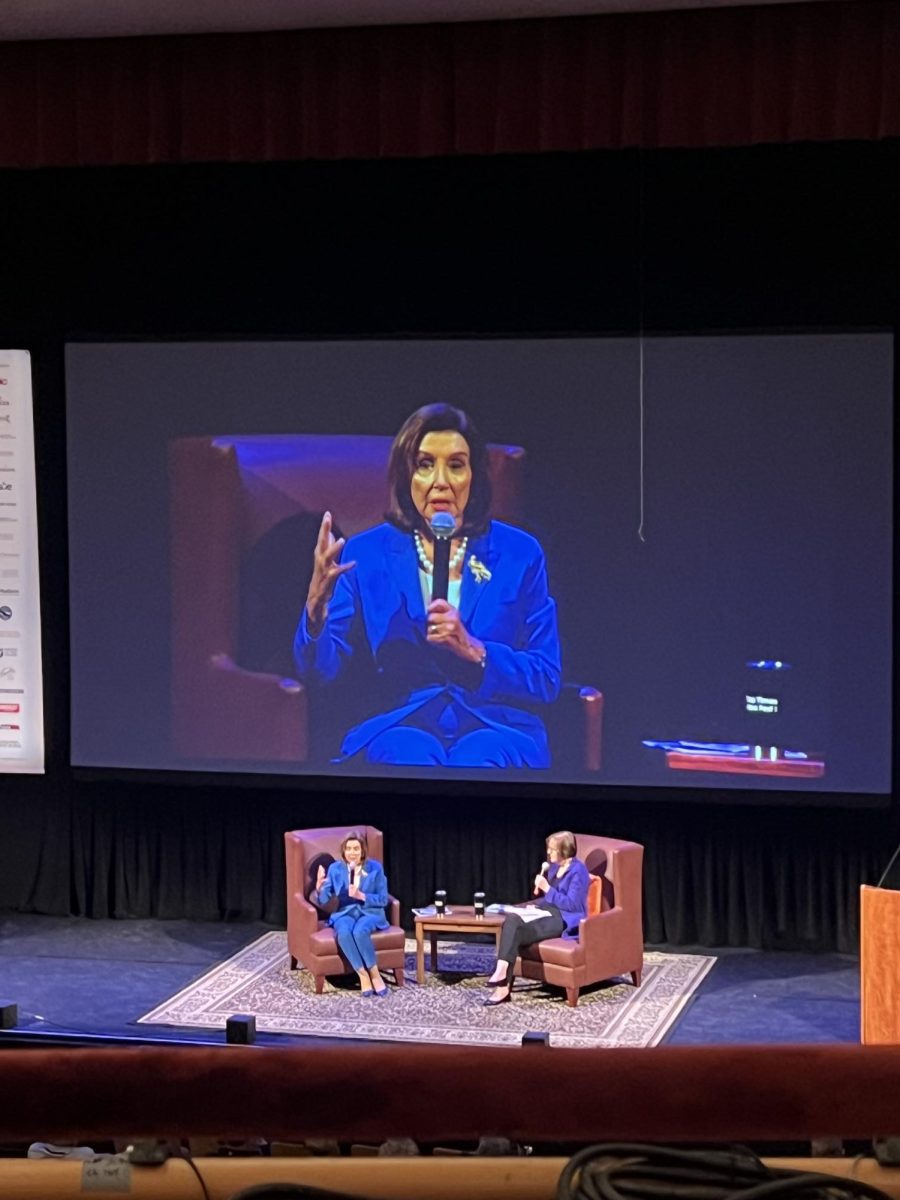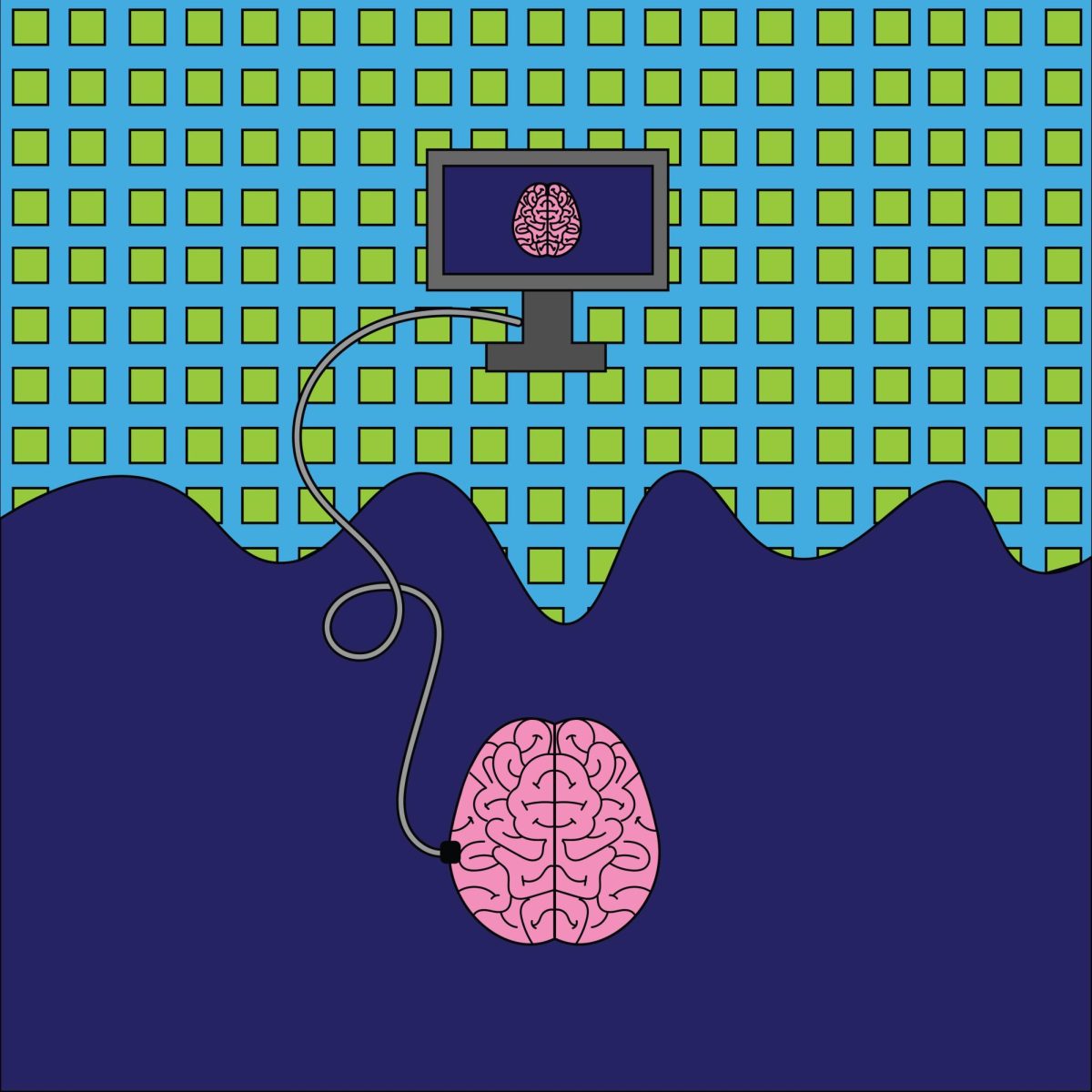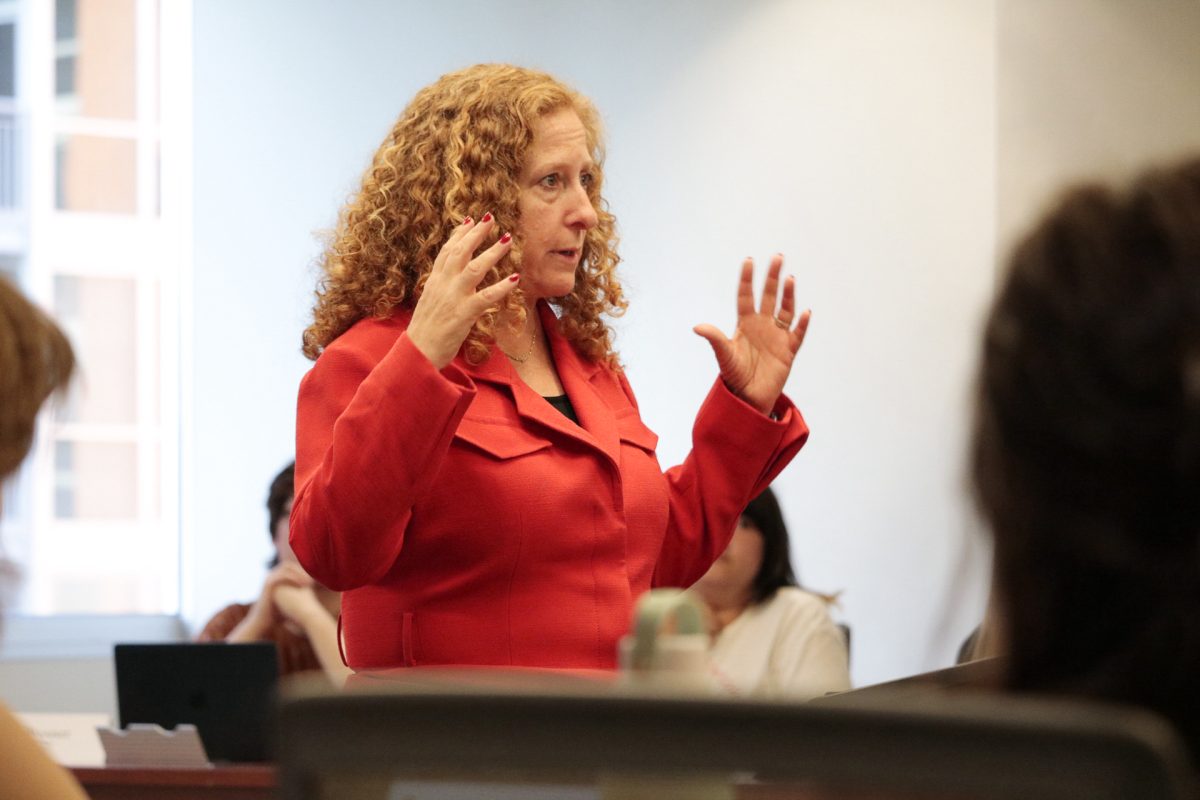Returning to classes for many students often means new professors, loads of work — and attending that “hot” new party.
But many would never stop to consider if attending that party could actually lead to a black eye or even a mind-numbing emotional attack.
With domestic violence incidents involving University of Wisconsin football players Lance Smith and Booker Stanley highlighted in the media over the past few years, more people are becoming increasingly aware of dating violence on campus today.
Carmen Hotvedt, violence prevention specialist for UW’s University Health Services said she has worked on the issue since the early 1990s and isn’t seeing an increasing trend in incidents but rather a rise in the number of people who are becoming more aware it’s a major concern.
“This has been a problem for a long time,” Hotvedt said. “But we as a nation have started to get our heads around the idea that ‘normal’ or ‘healthy’ relationships don’t look like one person having a lot of control. We are finally starting to understand that it’s a problem.”
According to the National Center for Victims of Crimes, 32 percent of college students report dating violence by a previous partner, while 21 percent report violence by a current partner.
UHS reports approximately 21 percent of violence experienced by women is from an intimate partner, whereas only about 2 percent of men experience such violence. Statistics show women are most often the victims of dating violence.
Ervin Cox, assistant dean of students for student advocacy and judicial affairs, said domestic violence is not just a problem on college campuses but also a pervasive issue throughout this country’s culture. He added the problems with Smith and Stanley are minor compared to UW’s peer institutions.
“This university does not have a problem with student athletes,” Cox said. “We have a lot of student athletes, and they are mostly good kids. We don’t have the problems other schools have. Talk to my colleagues and they deal with this stuff more than they would like to.”
The Offices of the Dean of Students sees a wide range of relationship abuse, from the less severe end involving controlling behavior to extreme cases of physical abuse, according to Cox.
“Maybe you see a friend starts dating a new guy and he wants to know where she is all the time,” Cox said. “It escalates up from there where there is some physical abuse. … [At] the extreme end of it, there was a case where there was a couple that was married where the man literally almost murdered her.”
Cox said while the university does not see an abnormally large number of domestic violence cases, it reacts appropriately when they arise.
“We are aware of it when there are students involved in these types of relationships,” Cox said. “When there is a case that involves some kind of abuse of another person, the university takes action.”
He added though the Stanley and Smith incidents garnered a great deal of media attention, these incidents often go unnoticed.
Ally Cruickshank, a UW senior and president of Promoting Awareness Victim Empowerment, agreed with Cox’s point, adding it is hard to say if the university has an unusually large problem because these crimes are vastly underreported.
“The reality is that an overwhelming majority of people who are sexually assaulted know the person,” Cruickshank said. “It is not very often heard of, but it’s definitely much more a part of our campus than people want to admit.”
A new height to dating violence prevention
After receiving a three-year, $300,000 grant from the Department of Justice, the university will have an opportunity to take its dating violence prevention services to a new level.
The grant announced in December will fund a program dubbed “Community Problems, Community Solutions: Building Capacity to End Violence Against Women at UW-Madison” that will allow the university to hire a prevention and training coordinator, to purchase an online sexual assault education tool for incoming students and provide subcontracts for training services with the Rape Crisis Center and Domestic Abuse Intervention Services.
According to Hotvedt, the university takes a three-step approach to dating violence: prevention, helping victims and training first responders.
Hotvedt said a major problem now involves students coming into college already dating someone who is abusive or controlling, which means many don’t know what a “healthy” relationship should look like.
“There’s a lot of victim blaming that goes on in media coverage, you know, they kind of turn it on the woman and we really excuse the perpetrator’s behavior,” Hotvedt said. “You don’t choose to date an abuser, you choose to date someone.”
The grant, Hotvedt added, will give the university the ability to hold perpetrators more accountable for their actions and raise awareness throughout campus.
Cruickshank said she is very excited about the grant because it is a great opportunity to start working with students to create a better sense of awareness on campus.
“The grant validates the fact that [dating violence] is one of the things people don’t want to talk about, but something we really need to,” she said. “I think the whole idea of prevention is so important.”
The grant will also open doors to reach first-year students. Cruickshank added with the grant, they can start talking to students right away and set a good tone for students when they enter the university.
“They won’t feel silenced. They’ll know there’s a space for them here,” Cruickshank said.
University discipline policies
After the University of Wisconsin System’s Board of Regents presented revised student misconduct policies to the Legislative Council in October 2008, the standard of proof for the university to expel or suspend a perpetrator could be lowered.
Pending the Legislature’s review after a public hearing in the upcoming months, the standard of proof would change from clear and convincing to preponderance of evidence. The change stems majorly from federal government standards, Cox added.
“A victim shouldn’t have to show ‘clearly’ they were sexually assaulted — it should be a fairly easy standard to show,” Cox said.
Donald Downs, UW political science professor and president of the Committee for Academic Freedom and Rights, said he isn’t quite sure why the regents decided to lower the standard of proof for sexual crimes and not for other crimes.
“That has an aura of favoritism — which has no place at this university,” Downs said. “You would never say in a criminal system we would lower the standard of proof for some crimes and not others. Why are we not doing this for other cases?”












